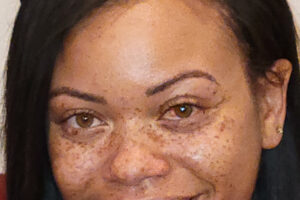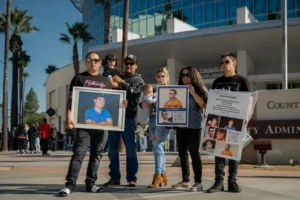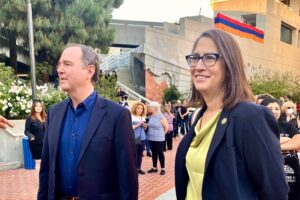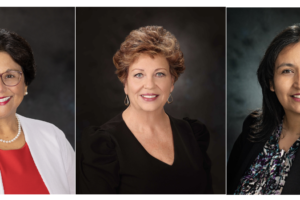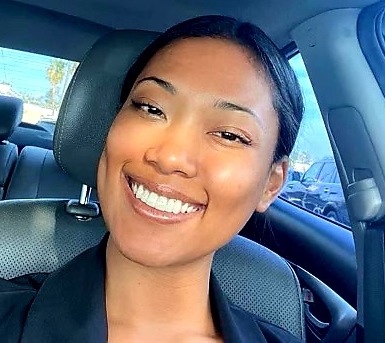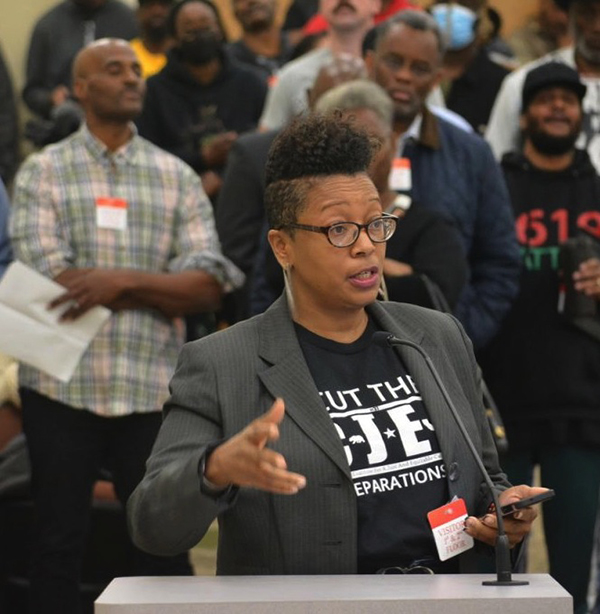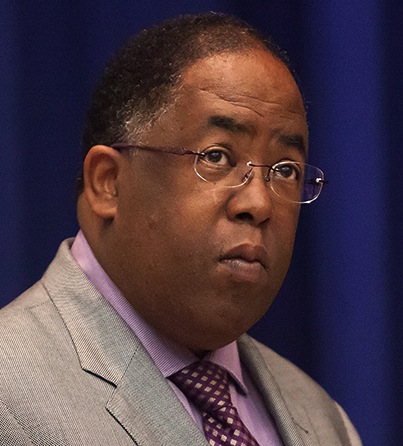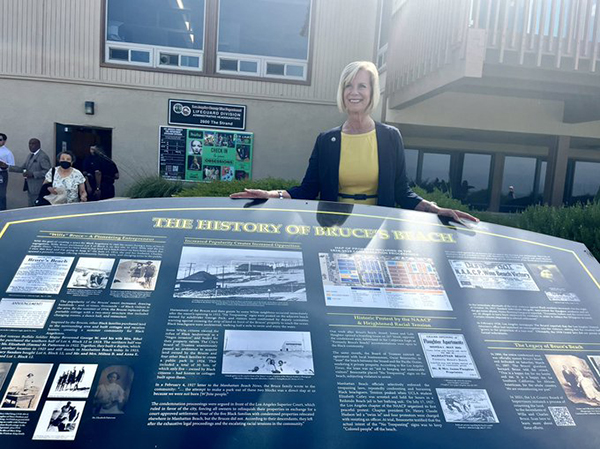By Shirley Hawkins
Contributing Writer
LOS ANGELES — Coming on the heels of the shooting death of six Asian women in Atlanta March 16, the death of a 28-year-old Asian woman in Compton March 20 elicited a sharp response from civic leaders and activists from all communities seeking to put a stop to the rising number of random hate crimes.
“There has been a dramatic increase of women of Asian descent being murdered or violently attacked nationwide,” Najee Ali, the director of Project Islamic Hope, said at a press conference near the scene of the Compton killing the next evening. “It’s important the murder of Sia Marie Xiong receives a proper and thorough investigation. The family believes her race played a role in her murder.”
According to reports, Xiong was shot and killed before daylight March 20 in the 1600 block of East Kay Street in Compton. The Los Angeles County Sheriff’s Department said there was no known motive for the attack and no suspect information.
Xiong, who was from San Diego, but most recently lived in Fontana, was taken to an area hospital where she was pronounced dead with a gunshot wound to the lower chest.
The following day, rallies were held in Chinatown, Alhambra and Diamond Bar among other locations, calling for an end to hate crimes and racial violence against Asian Americans.
On March 22, a larger press conference was held in Koreatown with leaders of the Asian American community speaking out against hate crimes in general and the growing number of hate incidents targeting Asians.
According to speakers, since the coronavirus pandemic began in March 2020, there have been 3,800 racial incidents reported against Asians across the nation, 360 in Los Angeles.
Asians report being victims of robberies, physical attacks, verbal harassment and being coughed and spit on. Many say they have been confronted with slurs such as “Chinese virus” and “Kung Flu,” as if Asians were responsible for the pandemic.
“The fear is truly palpable,” said Los Angeles City Councilman John Lee, the only Asian on the council and only the third Asian to ever serve on the council. “Especially for Asian business owners and employees who wonder when this hate will show up on their doorstep. But in the midst of all this ugliness today as you can see by your attendance here, there’s also a little hope.”
Capri Maddox, executive director of L.A. Civil + Human Rights and Equity Department which was created to investigate allegations of discrimination against erhnic groups, said her office has received a steady flow of calls from the Asian community.
“Hate crimes in Los Angeles were up with a 114% increase for the Asian community in 2020,” she said. “People are afraid to allow their mothers to go to the supermarket or leave their homes for fear that they will be the victim of a violent hate crime.
“Hate is hate is hate and when they come for one of us they will ultimately come for all of us,” Maddox added, saying that an increase in hate crimes also has been reported by members of the Hispanic, African American. gay and transgender communities.
Rosalyn Vasquez, president of the Thai American Chamber of Commerce, said she has been victimized because of her ethnic background.
“It comes in different forms,” she said. “They mumble something under their breath and just walk away. And it’s a feeling of what did I do? And you know, they might not use any words, but you know it’s because of the color of your skin.”
Los Angekes police officials were on hand to advise people to report hate incidents they witness.
“If you happen to witness a hate crime, get a description of the individual if they are in a car and get a license plate number,” LAPD Deputy Chief Blake Chow said. “We want people to stay safe, but record the incident with your cell phone and call 911.”
Mayor Eric Garcetti attended a meeting with other city officials and members of the Asian community March 19, three days after the Atlanta shooting and a day before Xiong was killed in Compton.
He remonded those in attendance that Los Angeles and the U.S. in general has a dark history of violence and discrimination against the Asian American Pacific Islander community.
“I’m footsteps away from the largest mass lynching in U.S. history,” Garcetti said. “People forget, in the late 19th century, that it was here, residents of Chinese descent were victims of the largest mass lynching in American history, literally two blocks from where City Hall is today.
“It was here where we had Japanese Americans who were taken from their homes, property seized and put in internment camps like Manzanar up in Owens Valley. So I think we always want to contextualize what’s happening this year.”
Garcetti noted three ways the city is working to combat hate crimes and incidents in Los Angeles, including assigning hate crime investigators to all 21 police divisions, working to improve tracking and reporting, encouraging the public to report hate crimes and hate incidents and developing resources with the City Council and the city attorney to create a task force on Asian hate incidents and hate crime.
Ali, who is an advisor to the mayor, remembers when the city’s African-American community was odds with the Asian community.
That period may have received its apex 30 years when a 15-year-old Black girl, Latasha Harlins, was shot and killed by a Korean store owner. That was a different time, Ali said this week.
“Certainly we’ve made progress in race relations between the Black and Asian communities,” he said. “We are going to speak out when any group is attacked.
“The very fact that an Asian [Xiong’s] family reached out to be for help after she was killed speaks volumes for how far we have come.”


